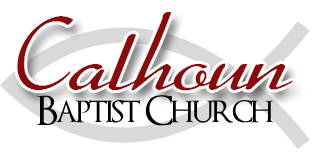
Missouri Baptist University’s self-perpetuating board of trustees on Nov. 16 named Keith L. Ross the seventh president of the institution.
The announcement came about two weeks after James Plymale, chairman of the MBC-elected MBU trustees, sent a letter to the self-elected MBU trustees, asking them to defer such action until an appeal involving MBU and the Missouri Baptist Convention is resolved. Plymale received no reply to his letter.
On Sept. 27, Special Judge Karl DeMarce ordered MBU to return governance of the university to trustees duly elected by the Missouri Baptist Convention. DeMarce made the same ruling about the self-perpetuating board of The Baptist Home.
In a clear and strongly-worded 86-page opinion, DeMarce held that trustees of the Home and University violated Missouri law when they cut off the MBC’s rights in 2000 and 2001, respectively. The charters of both institutions required MBC messengers to approve any changes.
Once final, the court’s order voids any unapproved amendments, restores the former charter with the MBC’s rights, removes the breakaway board, and replaces them with MBC-elected trustees.
Both MBU and The Baptist Home have appealed the decision to the Court of Appeals in Kansas City. That process may take 9-12 months.
DeMarce’s verdict, however, mirrors a 2016 Missouri Supreme Court ruling that restored governance of the Missouri Baptist Foundation to Convention-elected trustees. That transition has gone smoothly, with the MBF board recently naming Neil Franks as president.
A cooperative spirit
The letter from Plymale to MBU’s self-perpetuating board sought the same cooperative spirit that has characterized the return of the Foundation to the MBC family.
Plymale’s letter read, in part: “The Foundation transition is a model of what we hope can be accomplished with MBU…. We would welcome dialogue now about how we might work cooperatively with your board and staff to assure that excellent services continue to be provided to students, faculty and staff.”
The MBU’s Ross will replace Alton Lacey, who retires in May 2018 after a long tenure with the university. Noting the school’s search for a new president, the MBC’s Plymale wrote, “We respectfully ask that your board might defer any further action on this process until judgment is final, or at least until our boards can have some conversation about candidates and qualifications.”
Plymale continued, “We hope you will inform any candidates that the MBC-elected board will want to participate in the selection of the new president, and that any selections made before judgment is final would be subject to review and approval by our board. We would rather not put an individual candidate or the institution in an uncertain position if Judge DeMarce’s judgment is ultimately upheld.”
Responding to MBU’s decision to spurn Plymale’s request, Michael Whitehead, the MBC’s chief legal counsel, commented: “Judge DeMarce left no doubt in his blistering 86-page opinion that this board must be ousted. He was not inviting them to hastily appoint a new president before the ouster takes effect. Rev. Plymale’s letter urged patience and dialogue, but his request was seemingly ignored. The court will not be ignored. When the judgment is upheld on appeal, we expect the incoming board will ultimately control such decisions.”
The Foundation model
The transition of the Foundation back into the MBC family has gone very smoothly, with no interruption of service to investors, according to MBC Executive Director John Yeats, who added that the Foundation experience should serve as a model for restoring MBU and The Baptist Home to MBC governance.
“The outgoing and incoming Foundation boards worked together closely and cooperatively in a way that honors the Lord,” he says. “Our desire is that the transition in governance of the university back into the MBC family goes equally well.”
Yeats stressed that the transition does not directly impact the quality education MBU provides for its students, nor are the legal issues designed to determine which board offers the best environment for higher learning.
“Rather,” said Yeats, “this is simply a matter of who has the legal right and fiduciary responsibility to govern MBU. We believe it is a board of trustees duly elected by Missouri Baptists, and the courts have agreed to this point.”
Yeats expressed his hope that Judge DeMarce’s decision helps end this long-running legal saga. “All Missouri Baptists should rejoice that their entities are restored to lawful boards, lawful documents, and brotherly fellowship with the Missouri Baptist Convention” he said. “We are eager to welcome MBU and The Baptist Home back into the MBC family.”
MBU and Judge DeMarce
MBU is one of five MBC entities that changed their charters in 2000-2001 to become self-perpetuating boards, rejecting the rights of the MBC to approve charter amendments, to elect trustee boards, and other rights.
Missouri Baptist University’s main campus is located in St. Louis and has reported total enrollment of more than 5,000 students, including extensions and online learning.
MBU filed a notice of appeal in the Kansas City Court of Appeals on Oct. 27, which had the effect of staying the trial court judgment until the appeal is over.
In a judgment signed Sept. 27, 2017, DeMarce gave the university trustees’ legal arguments low marks, peppered with strong criticism:
The University has, in essence, imagined . . . an almost bewildering variety of hypothesized possible contractual relationships … an extra-ordinarily self-serving legal relationship, one almost stunningly favorable to itself, one which would have completely justified the unauthorized 2001 amendments to its 1997 Articles. Thus, the University has proceeded to ask this Court to enforce the supposed legal consequences of this wholly illusory state of affairs against the Convention. . . And in the final analysis, it means that Missouri law would have granted non-profit corporations the extraordinary privilege of serving as the “judge in their own case”—in practice, judge, jury and executioner—and that their autocratic and self-serving decisions in those matters would be effectively unreviewable. In the utter absence of binding authority which would compel such capricious and preposterous conclusions, the Court declines to so hold. [emphasis added]
